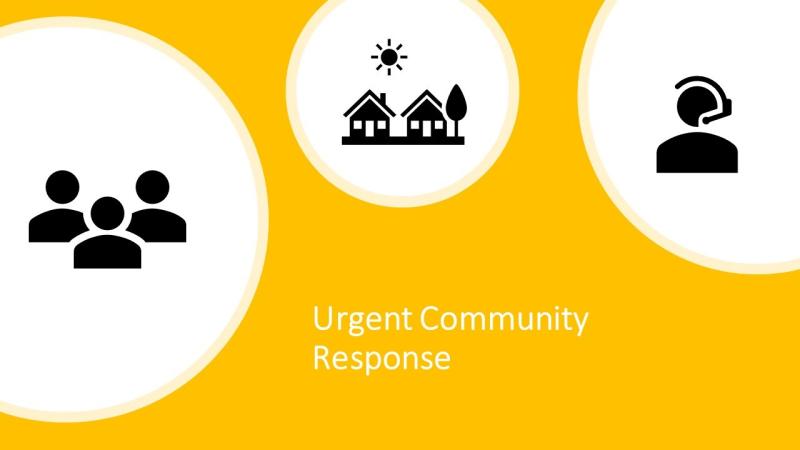The Strategy Unit, with our partners Ipsos, has been commissioned by NHS England and NHS Improvement (NHSEI) to provide a long-term national evaluation of the Urgent Community Response programme rolled-out across England. The programme aims to shift resources to home and community-based services as part of the NHS commitment to providing the right care, to the right people, at the right time. And there are a range of outputs from the early work that provide learning for local systems as they develop their services.
The NHS Long Term Plan (2019) set out a new standard for all Integrated Care Systems (ICSs) in England: that crisis response care will be provided to people within their homes (or usual place of residence) within two hours, from any referral source.
This is a unique programme. There are examples of services with similar aims in parts of the UK and further afield, but nowhere in the world has set such an ambitious national target. The minimum ask for April 2022 was a seven-day service from 8am to 8pm across the full geography of each ICS. And there is a lack of empirical published evidence about what works although many established services exist delivering similar approaches.
Building on this experience and best practice the national guidance for the programme sets out key principles and design features, with each ICS developing a locally tailored approach. In addition, seven ‘accelerator sites’ were established in 2020, one in each NHS region, to provide early learning for national roll-out during 2021. Some systems are basing their provision on existing services; in others it is entirely new.
To build a comprehensive evidence base about what works, for whom and why, NHSEI has commissioned a long-term national evaluation from the Strategy Unit and partners Ipsos. The evaluation was designed through a range of stakeholder engagement activities and will provide ongoing learning through case studies of different approaches taken by seven evaluation partners across the NHS regions over the next two years.
The evaluation will establish:
- Operational learning: through process evaluation to understand the essential elements of a successful service at scale and maturity.
- Patient and carer/family impact: through an exploration of health and wellbeing outcomes and experience.
- Healthcare system impact: patient pathways, economic impact and presentations and admissions to acute care.
Early outputs for local programmes
To design an evaluation that reflects the diversity of the programme and provides ongoing learning, the Strategy Unit has been working with national, regional and local stakeholders and there are already some outputs from these design activities – and from the national team.
- We’ve produced a set of logic models setting out the programme activities and the outcomes that they are expected to deliver (here). The models were developed in April and May 2021 and are a summary of the programme at that time. The models will be updated to reflect the programme as it evolves, as part of the national evaluation.
- We’ve developed a metrics framework that sets out potential indicators for measuring the outcomes in the logic models – from national data sets, data collection and outcome frameworks, rating them for availability and utility in outcome and impact measurement for the programme – for the national evaluation and for local evaluation planning (here). This will be revisited to reflect new outcomes that are identified and reflected in revised logic models
- We’ve reviewed international literature to identify learning for the programme – from programmes and interventions with similar aims (here)
- All of these activities have informed the national evaluation design – and you can find a summary of the key lines of enquiry and our approach here. The design will evolve in response to the programme as it develops.
- And the national team at NHSEI have been working closely with the seven accelerator sites to capture their learning, producing a report full of rich and detailed learning (available to those with access to FutureNHS - if you’re not a member of FutureNHS and would like to join, please email communityhealthservices-manager@future.nhs.uk to request access)
The first report on learning from research with case studies will be published this summer (2022), with a further report from ongoing implementation in Spring 2023. A final report evidencing what works will be published in Spring 2024.
Continue to check this page for future updates and publications!
